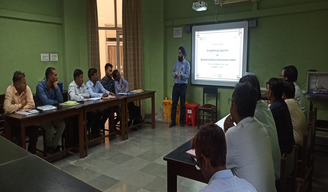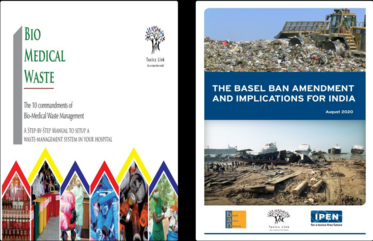MERCURY HEALTHCARE
Mercury is a toxic heavy metal, which is bio-accumulative, biomagnifies, and persistent in nature. It metabolizes into the deadly methyl mercury naturally, once it reacts with the bacteria present in the soil and/or water. Mercury can pass through skin, blood, brain & placental barrier and cause devastating effects on the functioning and growth of brain of developing fetus. The ability of mercury for trans-continental or trans-boundary movement makes it an issue of global concern and thus need complete phase out at global level.
Global Scenario
Several governments and civil society groups have consistently raised concerns on health and environmental impacts of this metal which finally compelled the UNEP Governing Council Decision 25/5 of 2009 to prepare a global legally binding instrument on mercury. Taking the concept forward a treaty named “Minamata Convention on Mercury” was adopted on 10th October 2013 at the Conference of Plenipotentiaries (Diplomatic Conference) in Kumamoto, Japan. Since its adoption 128 countries have already signed the treaty and it came into effect after a gap of 90 days post its ratification by 50 countries. India too signed this treaty on 30th September, 2014 and sets out to reduce the use of mercury in the country by 2020.
The Minamata Convention has a far reaching impact on the overall mercury management in the country and the role of regulators and policy makers will be of critical importance. Hence, it is important to understand and examine all aspects of the convention and its resultant impact on environmental governance. (Visit the link for details of Minamata convention http://www.mercuryconvention.org/)
Indian Scenario
Mercury finds a wide range of application in India, however there are no estimates of its inventory or the scale of emissions and releases into environment and their impacts. India imports its total requirement of mercury and currently there are no regulations controlling such imports into the country. The major complications lie with the manufacturing of mercury containing health care instruments specially thermometers and preparation of dental amalgam. Most thermometer manufacturing units fall under the SME sector and operate from non-industrial premises with very little safeguards and monitoring. This makes it essential for a country like India to be a part of this convention and try to completely phase out mercury like rest of the signatory countries of mercury convention.






